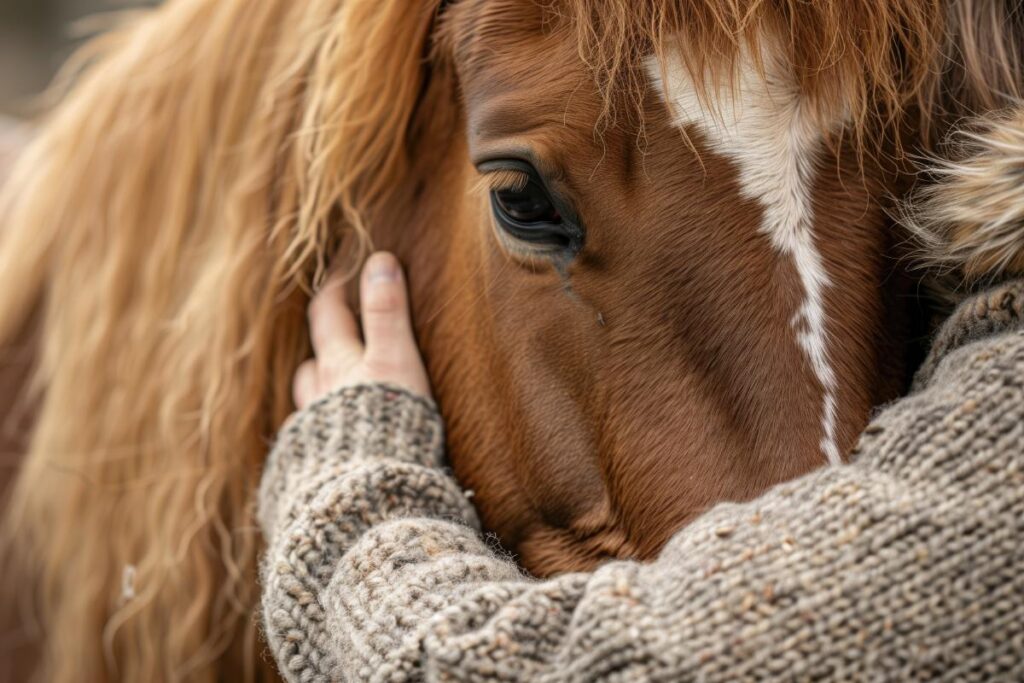Therapy can take many forms. Different therapeutic modalities provide a unique sense of connection for each person. These connections are often inward, as individuals gain a better understanding of their thoughts and behavior, but they can also be external toward others who help with that internal understanding.
Traditional talk, behavioral, and experiential therapies are integral parts of a treatment experience. Equine therapy is one approach that encourages the connection between horses and individuals. With facilitation by Sacred Presence, The Arbor offers an equine therapy program on a 67-acre campus in Georgetown, Texas.
Clients spend time each week with a therapeutic professional who guides them in connecting and interacting with the horses. Creating safe connections where you are not judged but rather accepted by the animals has a lot of value as part of an addiction treatment program.
The equine therapy team at The Arbor is happy to answer any questions you have about therapies offered for those battling a substance use disorder. Call 844.413.2690 today.
What to Look For in an Equine Therapy Program
If you are unfamiliar with equine therapy, it is a type of experiential therapy that focuses on the relationship between a person and another creature. Caring for another being and building trust and familiarity are activities that support the goals of an addiction treatment program. A holistic approach to treatment that incorporates various therapies has proven to be highly effective in staying on the path of sobriety and avoiding a relapse.
When choosing an equine therapy program, these are some of the goals the program should outline:
- Overcoming depression and isolation through building connections with the horses
- Confidence building through the responsibility of caring for another creature
- Developing better problem-solving skills
- Improved communication skills, especially non-verbal communication with the animal
- Testing setting healthy boundaries with the animal so that the same can happen in everyday life with family and friends
- Focusing on the needs of another being while tending to your own at the same time
Equine therapy helps hold individuals accountable for their own actions while also giving them the responsibility of caring for something other than themselves.
Equine Therapy Program Benefits
One of the biggest benefits—and appeals—of equine therapy is that horses pass no judgment. Addiction can be very isolating and make people feel very alone in their struggle. Building strong relationships is a vital part of supporting long-term sobriety. Starting with a strong connection with another creature—like a horse—can pave the way for healthier relationships with family, friends, and peers in the future.
Benefits of equine therapy include:
- Increased self-confidence and self-esteem
- Overcoming other fears by working with a large animal
- Developing a routine and controlling impulses
- Building trust between the person and the animal
- Social skill building by building positive relationships with other living creatures
- Learning effective non-verbal and verbal communication methods through interactions with the horses
- Fostering empathy and focusing on someone else’s needs through the act of having to care for another living creature
Equine therapy supports a complete and well-balanced treatment experience through building strong and healthy connections. No prior experience with horses is necessary—just a willingness to learn and be outdoors with animals and nature.
Try Equine Therapy at The Arbor to Start Your Recovery
When in addiction recovery, connections are essential. This can be especially true if close relationships were damaged as a result of the addiction. Building connections with animals—like horses—can help pave the way to building, or rebuilding, trusting relationships with family, peers, and others. At The Arbor, clients can engage in other experiential therapies as well, like yoga, art therapy, and even recreational therapies like disc golf and fishing.
Call The Arbor team at 844.413.2690 or contact us online to learn more about experiential therapies like equine therapy.

